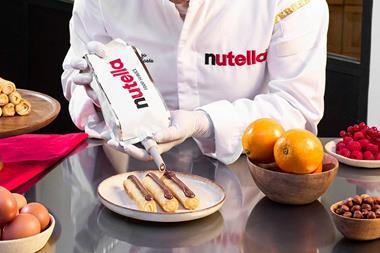
Muted interest in distressed craft breweries for sale means some may struggle to find buyers willing to take them on, a leading restructuring professional has warned.
Luke Wilson, an insolvency practitioner who worked on the pre-pack sales of Magic Rock and Fourpure to Keystone Brewing Group, said his firm FRP Advisory hadn’t seen “an abundance of people knocking down the door” to acquire brewing businesses it had been tasked with bringing to market.
“It is a challenging market for independent brewers but from a consolidation and solvent exit scenario, it’s equally challenging,” said Wilson. “And that is slightly at odds with some information you’ll see that says there’s still really high demand for good, independent craft beer.”
The “pretty big risk profile” of many of the breweries being offered for sale meant there would be times when there were no buyers and the businesses could not be salvaged, he warned.
“There will be cases where it doesn’t quite sit right, because you don’t have a jewel in the crown – be that a particular recipe or brand within the brewery – and you’ll end up with closing doors,” he said.
Many craft breweries in recent years have been sold for valuations far below those given in previous fundraising rounds. Gipsy Hill, for example, was sold for just £5m, having valued itself at £21m as part of a crowdfunding round in 2022.
The smaller sums fetched by distressed craft brewers reflected the challenges facing the businesses in question, and the lack of interested parties in acquiring them, Wilson said.
“If you’re selling on a solvent basis then there’s a calculation to be made based on projected future sales, EBITDA and due diligence done by the buyer,” he said. “The contrast between [that and] a distressed sale is very much a reality of life. The values are going to be miles and miles apart.”
“If you’re not getting that interest in the distressed asset and you’re left with one or two people and only one of those wants all of the business, it is in the best interest of everyone to try and save the business and save jobs,” he continued. “But what that means is it’s very difficult to negotiate up on a price.”
Craft beer ‘fatigue’
Among the challenges facing craft beer suppliers were higher wages, supply chain issues, increases in the cost of raw materials, and aggressive negotiation tactics by supermarkets, said Wilson.
“If you’re a supermarket with the buying power of Tesco or M&S and you have lots of independent brewers trying to get their products into your stores, then all the power is in your hands in terms of how you approach those deals, how you approach the pricing, how you approach the credit terms,” he said. Additionally, there was “a bit of fatigue around craft beer” and “things had moved on a bit from 10 [to] 15 years ago”.
The ability of craft brewers to navigate these challenges depended on how well capitalised they were, how large their margins were and how they were able to manage their cash flow, he added.



















No comments yet